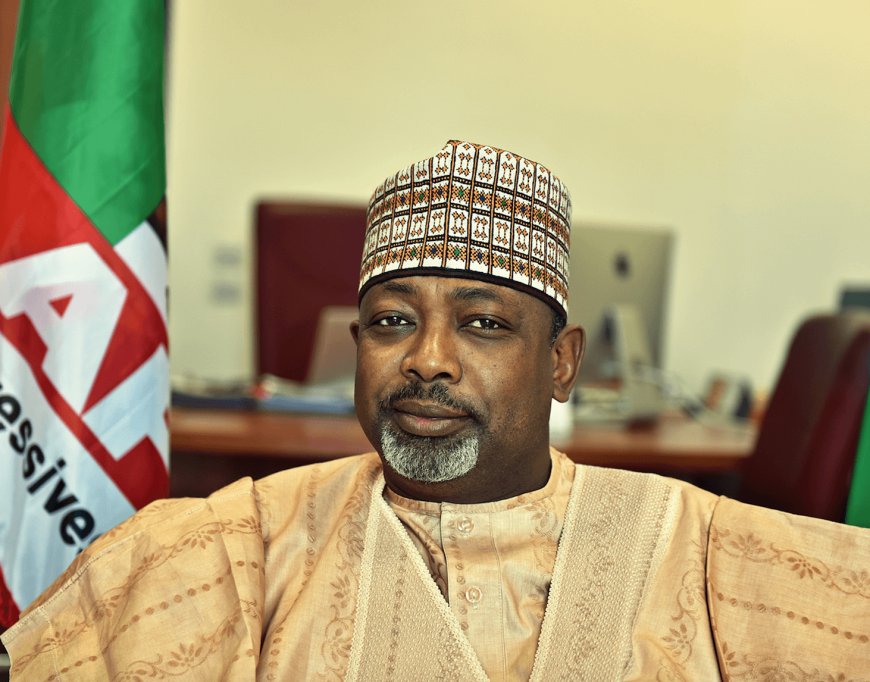Horticulture key to jobs, food security – Minister

Minister of Agriculture and Food Security, Abubakar Kyari, has identified horticulture as a powerful driver of food security, women’s empowerment, and youth employment, provided it receives adequate policy backing, investment, and partnerships.
Kyari made this known on Wednesday at the Learning Event 2025 of the HortiNigeria programme in Ibadan, themed “Catalysing Sustainability and Inclusion through Stakeholder Engagement in Nigeria’s Horticulture Sector.” His message was delivered by the Director of Horticulture in the ministry, Yerima Ubah.
The HortiNigeria programme, funded by the Embassy of the Kingdom of the Netherlands and implemented between 2021 and 2025, is led by the International Fertiliser Development Centre in partnership with the East-West Seed Knowledge Transfer Foundation, the Royal Tropical Institute, and Wageningen University and Research.
According to Kyari, the programme has recorded impressive results across Kaduna, Kano, Ogun, and Oyo States. “We have seen a 93 per cent increase in crop yields, a 205 per cent rise in farmer incomes, and more than 76,000 farmers trained. Women and youth participation far exceeded original targets, confirming horticulture’s role in boosting productivity, empowering women, and creating dignified jobs for young people,” he said.
The minister disclosed that nearly 900 horticulture-related micro, small, and medium enterprises have been supported, gaining capacity in agricultural practices, financial literacy, and business management. More than €4.1m in finance has been facilitated, while 477 new businesses and jobs have been created, with 70 per cent of opportunities taken up by youth.
Kyari added that the programme has reduced post-harvest losses by 83 per cent, supplied over 23,000 plastic crates to Mile 12 Market in Lagos for tomato handling, and piloted solar-powered irrigation systems to help farmers adapt to climate change. Policy reforms in seeds, tomatoes, and organic agriculture have also been advanced, alongside new credit-risk guarantees for farmers.
“These achievements are worth celebrating, but the journey is far from over. Challenges such as rising input costs, climate change, insecurity, and land conflicts remain. However, the successes of HortiNigeria show that with the right partnerships and enabling policies, these challenges can be overcome,” Kyari stressed.
Dutch Ambassador to Nigeria, Bengt Van Loosdrecht, reaffirmed his country’s support for Nigeria’s agricultural sector, noting that the Netherlands is the world’s second-largest agricultural exporter. “Nigeria has both the population and resources to become a hub for horticulture. Nigerian consumers are increasingly demanding quality produce, and that gives us a strong basis to scale up. We are ready to work with the government to move horticulture from potential to prosperity,” he said.
Also speaking, Juliet Agu, Assistant Director of Bilateral Economic Cooperations at the Ministry of Budget and National Planning, stressed the importance of embedding horticulture in Nigeria’s long-term development agenda. “Horticulture is a driver of jobs, nutrition, and trade. We must ensure the lessons from HortiNigeria are scaled and sustained beyond the programme’s lifespan,” she said.
Oyo State Governor, Seyi Makinde, represented by the Permanent Secretary in the Ministry of Agriculture, Abosede Owoeye, reaffirmed the state’s commitment to innovation. He said Oyo is repositioning its agricultural value chain through the Oyo State Agribusiness Development Agency to empower families, strengthen collaboration, and bridge knowledge gaps.
Similarly, Ogun State Governor, Dapo Abiodun, represented by the Permanent Secretary in the Ministry of Agriculture and Food Safety, Kehinde Jokotoye, praised the programme for its inclusive approach. “For Ogun State, horticulture is about food production, job creation, and ensuring women and youth remain at the centre of agricultural transformation,” he noted.
The HortiNigeria Programme Director, Mohammed Salasi Idris, said the initiative was not only about celebrating successes but also about planning for the future. Since 2021, he explained, the programme has supported over 70,000 farmers, connected them to markets, and built skills for small-scale producers.
“We need to move from aid to trade. Nigeria can double its horticultural exports by 2030 if we invest in innovation, climate-smart practices, and greenhouse technologies. Horticulture can become the engine room of agricultural transformation,” Idris stated.
With growing demand for fresh produce, proven success in reducing losses and raising incomes, and stronger international partnerships, stakeholders agreed that horticulture offers Nigeria a clear path to food security, economic diversification, and sustainable development.









